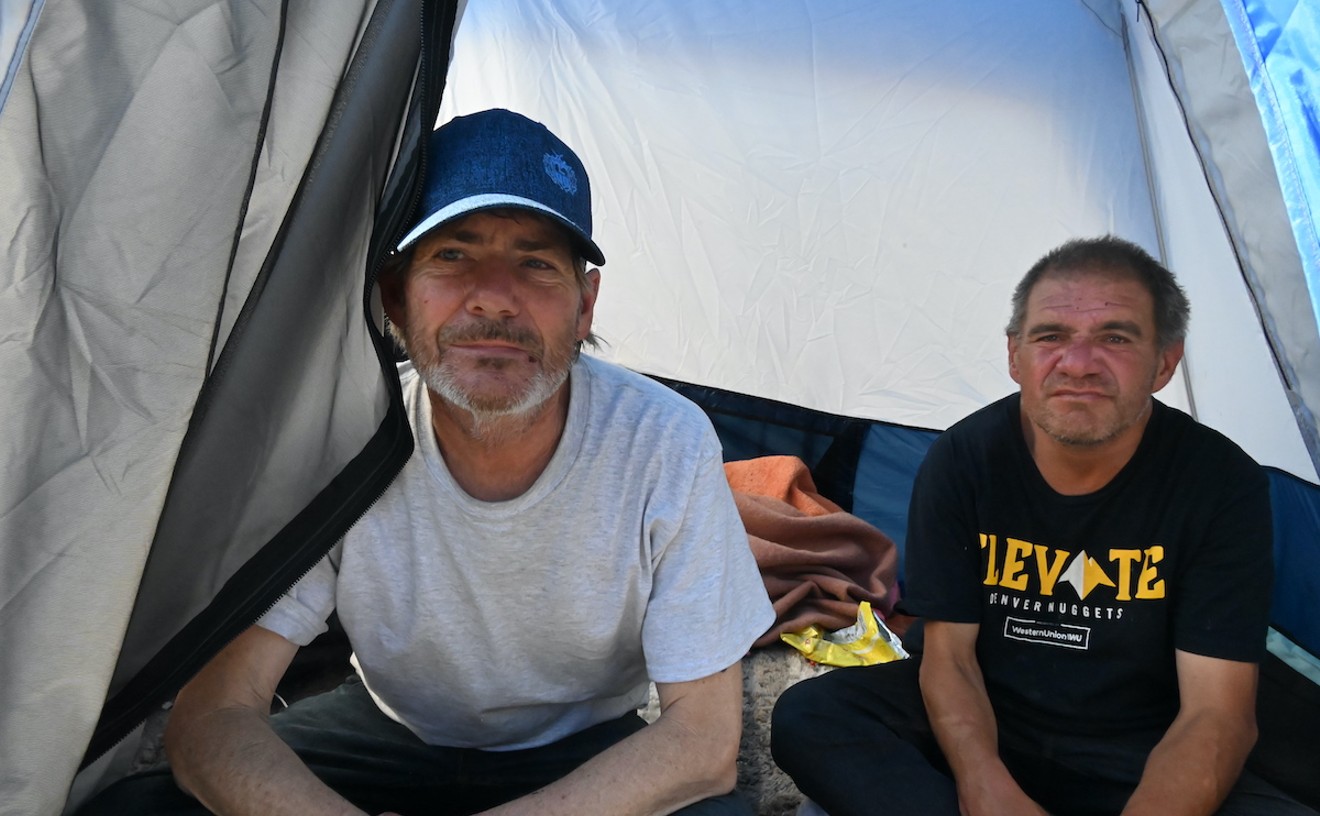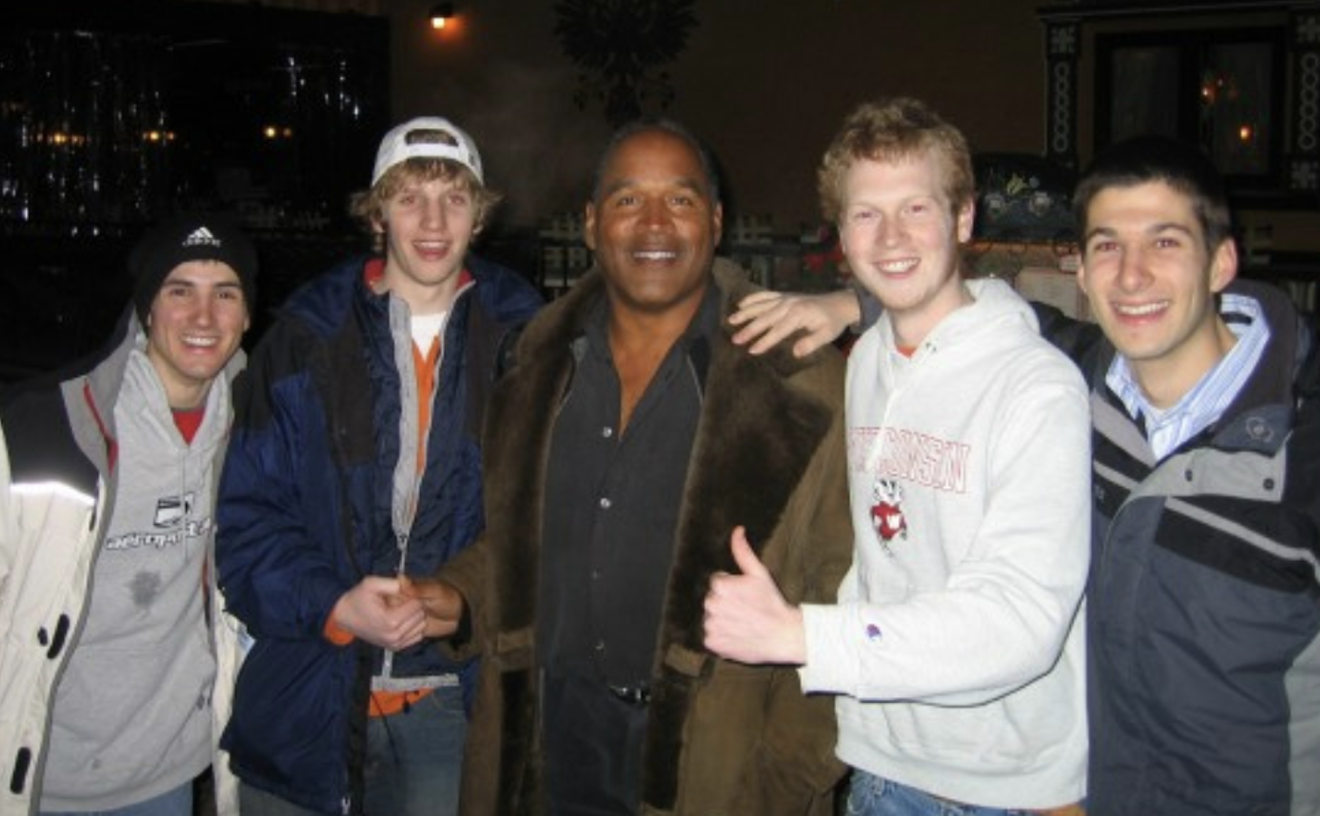I am working on this, but not particularly effectively. "You have an aversion, a reluctance to hug," notes one of my hugging coaches. "On a scale of 1 to 5, with 5 being an enthusiastic hugger, I'd say you're working on a 2."
My coaches, a married couple, are promiscuous huggers. They greet anyone and anything with a full-frontal hug, throwing everything they have into it, and will not settle for a mere pat on the back or a sincere side-to-side bump. In a casual place like Colorado, this eagerness to embrace all that life may present works well for them. It also keeps them warm.
As former flight attendants, however, they recognize that there are limits to physical familiarity. On the job, for example. Remembers one, "We'd smile, we'd meet and greet, and we'd do all of our warm fuzzies without touching."
But that was then and this is now, a now when your average airport security search is more intimate than a post-prom makeout session, a now when flight-attendant training focuses more on delivering lethal body blows than "warm fuzzies," a now when United Airlines is working to secure a federal loan guarantee at the same time it's trying to cut employees' pay.
Because of the standard Denver International Airport screening job that necessitates stripping, and then restoring, all metal parts usually associated with my person (fillings and bra clasp included; see "Busted!" October 11, 2001), I reached the gate for my United flight last Friday with just minutes to spare. The fellow across the counter calmly took my ID and handed me a boarding pass, along with a handshake and a hearty "God bless you." Then he moved over to help the agent boarding the flight.
"We've already met," he said as he looked at the ID and boarding pass he'd given me seconds before, this time returning them with another "God bless" and an enveloping hug that would have knocked my coaches out of their Hush Puppies. By their exacting standards, this was at least a 6.
I wasn't the only traveler to receive such an enthusiastic farewell. As they followed me onto the plane, fellow passengers who'd also been caught, then released, were agog over the odd, yet oddly comforting, experience. "Did I imagine what just happened?" marveled one. "Is that some new kind of screening process?" wondered another.
Back in Denver a few days later (no one hugged me at the Boston airport, not even my sister), I asked DIA officials whether they'd instituted a new hugging program -- one designed, perhaps, to encourage travelers to return to our economically challenged but friendly state. No way, they said (or words to that effect). Nor were there positions for greeters or masseuses advertised at Tuesday's DIA job fair, where the Mayor's Office of Workforce Development instead went looking for hundreds of food servers, utility workers, rental-service operators, cargo handlers, inventory clerks, bus and shuttle drivers, and "room-service attendants." (Here I'd thought the Denver cops were through loafing at the airport.)
And while there are many holidays devoting to hugging, including Hug Your Cat Day, Hug a GI Day, Hug a Texas Chef Month and Hug an Elder Week, none corresponded with this first Friday in November. (For those in need of remedial work, National Hugging Day is January 21.)
I consulted with my hugging coaches, who couldn't imagine that airline procedures had changed that much since they'd come back down to Earth. With a firm grasp on reality, they pointed out that flight-attendant hugging could easily be misconstrued and was perhaps even actionable in these untouchy-feely days. So finally, I called United headquarters outside of Chicago (come to think of it, I've never been hugged at O'Hare, or any other airport, for that matter). After many minutes of hold music -- the Gershwin theme co-opted by the airline over a decade ago -- I reached spokesman Joe Hopkins. "We have no policy about hugging," he reported. "We don't give direction one way or another to encourage or discourage employees."
And then, anticipating the inevitable media wisecrack, he added that this "was not covert security," either.
Hopkins didn't ask for the United employee's name, and I didn't offer any clues as to the identity of the man who was apparently a free-agent hugger.
After all, he'd done nothing more than send us off with the 21st-century equivalent of "Godspeed," wrapping us in reassuring words and arms before we headed into what these days can seem like very unfriendly skies.
When you stop by Denver Police Department headquarters to fill out an official DPD "Request for Intelligence File," you receive a piece of paper with this notice: "The information provided below will not be used to create any new criminal intelligence file."
No, instead it will be used when the DPD has to repair yet another stupid blunder in the "spy files" scandal, which has been unraveling since March. If a spy novel moved this slowly, we'd still be on the first page.
But it was another page altogether that arrived at my house last week. "Recently, you submitted a request to the Denver Police Department for copies of any intelligence files, which might contain information relative to you," read the letter from Chief of Police Gerald Whitman. "At that time, you were advised that your name did not appear in any of the information. Upon further investigation of additional files, which were located, please be advised that your name does not appear anywhere in those files."
If a spy novel were crafted this clumsily, no one would make it past that first page.
To summarize the plot: Through an odd set of circumstances (okay, a blabby Lakewood police officer), this past spring the American Civil Liberties Union discovered that the DPD had been keeping surveillance files on citizens and activist groups that had been doing nothing more suspicious than exercising their First Amendment right to free speech. The ACLU sued the city to find out what was going on. Mayor Wellington Webb assigned three judges to get to the bottom of the mess, and they determined that when the DPD was setting up a new computer database a few years ago, untrained officers dumped information on hundreds of common citizens in with the rare actual felon. The resulting database contained the names of over 3,000 individuals and several hundred groups, some as suspect as the American Friends Service Committee, a recipient of the Nobel Prize. The judges recommended that most of those files be purged.
But before they were -- and at the request of the ACLU -- individuals and groups would be able to find out if their names appeared in the notorious spy files. And so starting on September 3, they could present themselves at DPD headquarters, fill out the "Request for Intelligence File" and wait while an officer went upstairs, checked the database and then handed back the form with one of two boxes checked: "a copy of the file consisting of ___ pages was given to the requesting party" or "the requesting party was not on the list of files due to be purged from the system, so no information was provided." A check in that second box could mean two things: Either your name had never been in the files and so could not be purged -- or your name had been in the files, and the judges and the cops thought there was good reason to make sure it stayed in the files, and so it would not be purged.
But it turns out there was another possibility: There was stuff about you all over the police department, and the intelligence bureau just hadn't been smart enough to find it.
Two weeks into the process, an officer discovered a cache of intelligence files that had never been catalogued. A tight-jawed Whitman moved six new officers into the bureau to search every nook and cranny for other errant information. And in the meantime, the DPD sent about 800 letters to those who'd already requested their intelligence files.
Lieutenant Judith Will, whose name is listed as a contact on that letter, has been working in intelligence for about six weeks now, reassigned from District 6. "The next round is reaching out to everybody," she says, "even people who haven't requested their files." People who received police honorariums, for example, who somehow wound up with the rest of the folks in the spy files.
At this point, nothing would surprise ACLU legal director Mark Silverstein. "First there was the fiction that everything had been put into the database and all the paper had been purged," he says. "Then on September 16, they announced the discovery of all the file cabinets of the allegedly purged files.
"We're interested in seeing copies of what people receive," he adds. "There's always the possibility that someone will receive the disclosure of documents we haven't seen."
Time to turn the page.











